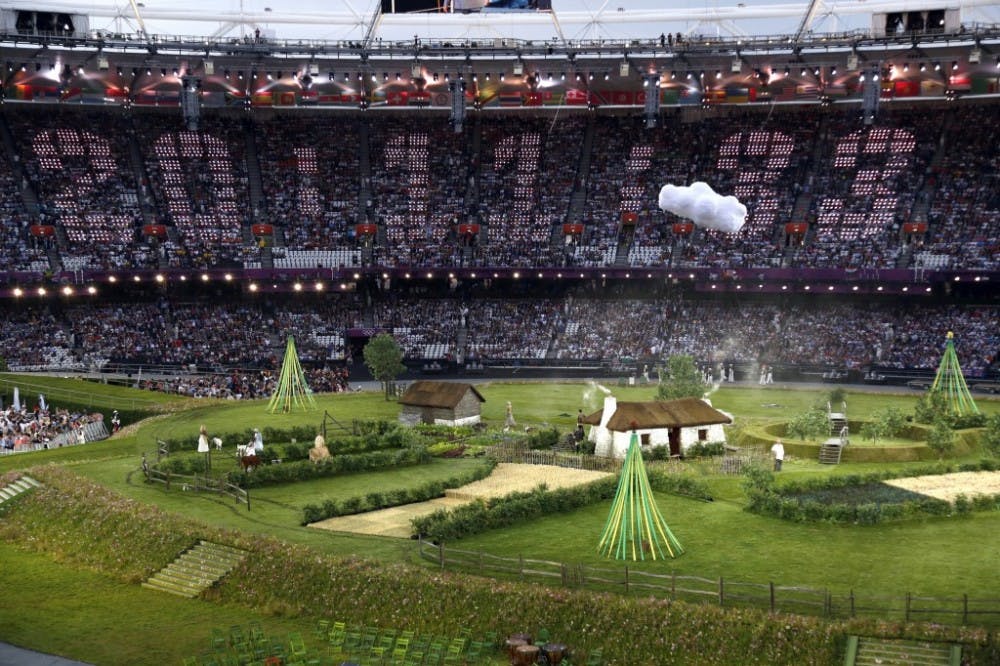LONDON — “Sustainability is like teenage sex. Everybody says they’re doing it, very few people actually are doing it. Those that are doing it are doing it badly.”
Students were greeted with this quote from Chris Spray, environmental director at Northumbrian Water, when they sat down to attend the Foundation for International Education’s sustainability lecture in London in October.
Presenter Olly Lawder spoke to students about how the city of London has been affected by the 2012 Summer Olympics. Lawder is a creative planner at Futtera, a sustainable communications agency that worked with the city of London during the 2012 Olympic Games.
“What does it actually mean to be ‘the most sustainable Olympics ever’ when no previous Olympic Games have even come close?” Lawder said.
Before London captured the world stage to host the 2012 Summer Olympic Games, the country made three promises during its bid to host the games. London promised to be the most inspiring, the most diverse and the most sustainable Olympic Games yet. A year later, the city is looking back to gauge its progress and development.
Inspiring a generation was London’s first goal. According to the BBC, there are 1.4 million more people playing a sport regularly in the United Kingdom since 2005, when London won the bid to host the Olympics.
In a video released by the mayor’s promotional organization, London mayor Boris Johnson said he thinks the games were a huge success that gripped people in a way the city couldn’t have anticipated. According to the U.K.’s Office for National Statistics, the games attracted 680,000 overseas visitors to London during the Olympics.
“The opening ceremony did a great job of inspiring people, and the Paralympics changed the way people thought about disability,” Lawder said. “But when it came to sustainability, despite all the good individual initiatives, they failed to really excite the British public about the true value of sustainability to the nation. That was a missed opportunity.”
The New York Times reported last year that the Beijing Olympics “Bird’s Nest” Stadium has scarcely been used since the end of the 2008 games. It also reported that 21 of the 22 stadiums constructed for the 2004 games in Athens had fallen into disuse as of 2009. London hopes to avoid this fate.
London attempted sustainability for the 2012 games as it encouraged use of the London Underground for transportation to and from the venues and created a new recycling campaign around the Olympic Park. The city also tried to utilize other pre-existing venues like Wimbledon Stadium instead of building more semi-permanent structures. Even the basketball arena constructed for the games was designed as a flat pack and could be sent to Rio de Janeiro for use in the 2016 Olympic Games.
Today, London’s Olympic Park is undergoing renovations to become Queen Elizabeth Olympic Park, a huge development to make way for new schools and businesses. The Athlete’s Village is being converted into both private and social housing, while venues created for the games are being adapted into multi-use sporting facilities for the local community.
Tricia Hogan is a junior at Elon University. She said she thinks that, regardless of how sustainable the actual games were, it is great to see London recycling the venues.
“It is good to see that the city of London is reusing the buildings and not letting anything go to waste,” Hogan said.
All of this is part of a larger plan to revitalize London’s East End. By 2030, the Olympic Park is expected to be home to five new neighborhoods containing new schools and playgrounds. This renovation will open in phases and will cost London roughly 300 million pounds, yet the cost is part of the original Olympic budget.
“I think that the way they are breathing new life into London’s east area will be beneficial to the entire city. It seems as though they are really trying to foster a sense of community in the area around the Olympic Park,” Hogan said. “I wouldn’t want something as spectacular as the Olympic Games to be responsible for architectural waste.”


